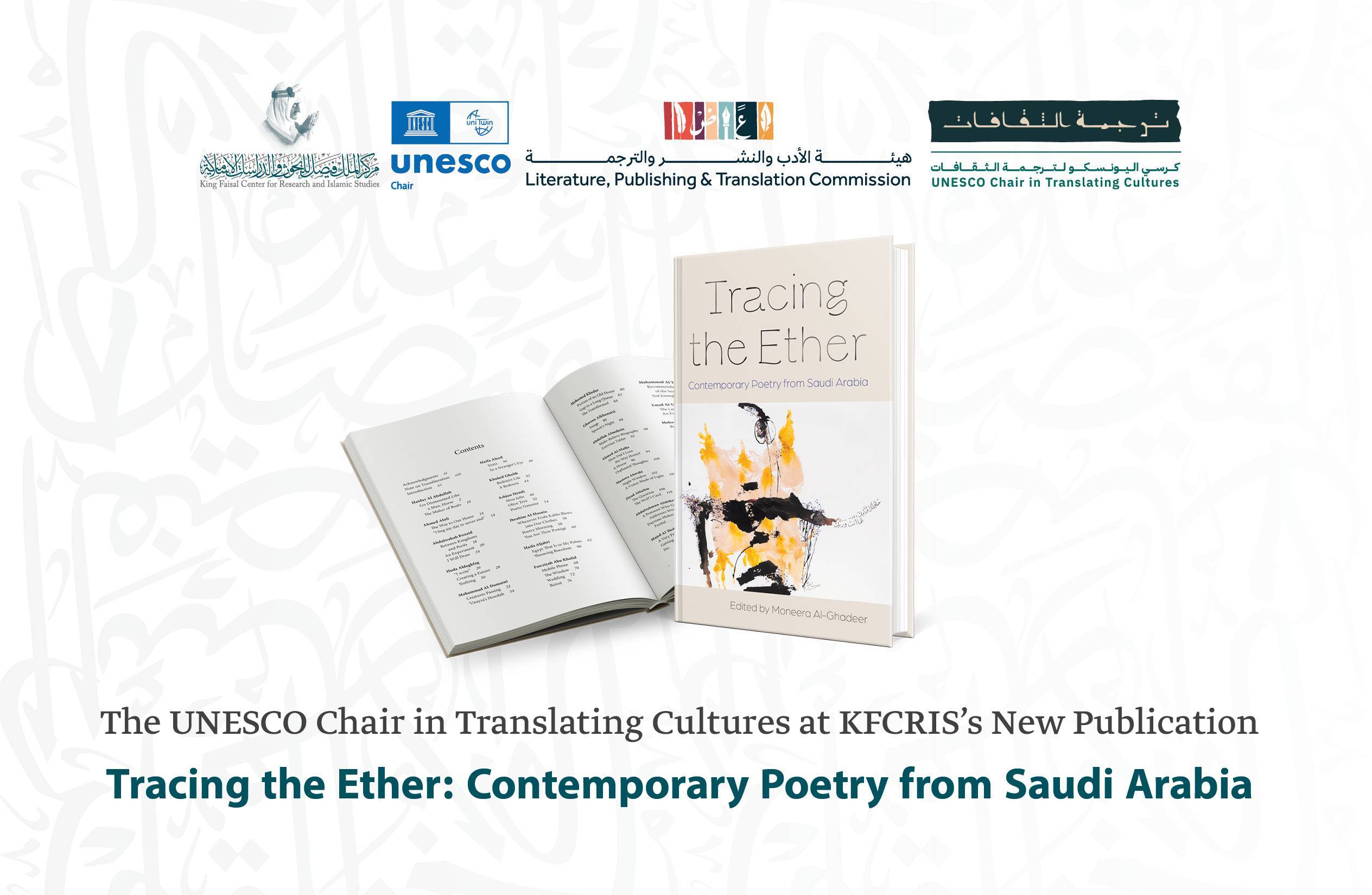费萨尔国王中心联合国教科文组织文化翻译讲席即将出版《追踪以太:沙特阿拉伯王国当代诗选集》
由沙特文学、出版和翻译委员会支持的费萨尔国王学术与伊斯兰研究中心联合国教科文组织文化翻译讲席非常荣幸地宣布,将于2025年11月通过雪城大学出版社出版《追踪以太:沙特阿拉伯王国当代诗选集》一书。该书由讲席主席穆尼拉·艾勒加迪尔博士担任主编并撰写前言,参与本书从阿拉伯语到英语翻译工作的有:穆尼拉·艾勒加迪尔(费萨尔国王中心)、克里斯蒂娜·西万托斯(迈阿密大学)、艾米莉·德拉姆斯塔(得克萨斯大学)、威廉·格拉纳拉(哈佛大学)、瓦伊勒·哈桑(伊利诺伊大学)、奈什娃·纳斯尔丁(伦敦诗歌翻译中心)、亚辛·努拉尼(亚利桑那大学)以及安娜·齐亚伊卡·斯坦顿(宾夕法尼亚州立大学)。书籍封面采用了沙特艺术家沙迪娅·阿利姆的绘画作品。
《追踪以太》是一部大型双语诗歌选本,聚焦二十六位卓有影响力的沙特诗人,他们在互联与数字化的世界中重新构想诗人的主体性。该书突破了阿拉伯诗歌研究的中心化、长期聚焦于蒙昧时代诗歌却忽视其他主题的模式,呈现六十二首当代诗作,它们大胆介入科技、网络空间、全球化与语言等主题。这些屡获诗歌大奖的诗人,通过创新的表达形式与想象框架,探索被数字文化与社交媒体用以重新塑造“祖国”“身份”与“文化边界”的语言。他们的创作并非对西方范式的模仿,而是在坚守本土文化语境的同时,以独特的诗歌声音参与普世人类经验的表达。
书名《追踪以太》兼具深厚的历史与观念意蕴。“以太”一词既体现出古代哲学中那种被假定为连接宇宙万物的本源介质,同时也回响着当下构成现代世界的无线电波领域;而“追踪”则让人联想到阿拉伯半岛古代迁徙者的循迹实践,以及蒙昧时代哀歌诗中以遗迹与语言书写缺失感的传统。然而,本书所收诗作并非追溯祖先谱系或废弃的房屋,而是追踪人与技术的相遇,穿行于瞬息万变的全球场景之中。讲席主席穆尼拉·艾勒加迪尔博士强调,《追踪以太》通过将这些重要诗歌声音带向全球受众,有助于加深并拓展世界对现代阿拉伯文学及其在世界文学版图中重要位置的理解。

